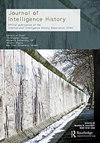向瑞典决策者通报情况:一个小国的分析师-决策者关系
引用次数: 1
摘要
政策制定者倾向于在提交给他们的结论中进行挑选。这可能导致政治化,最终可能导致情报部门因政策失败而受到指责。这对情报分析产生了负面影响,使其向更加谨慎的方向转变,从而否定了其在政策过程中的效用。瑞典情报部门了解到,对于真正重要的情报报告,特别是那些意味着范式转变的情报报告,结论必须在口头简报中以具有影响的方式提出。此外,简报者必须准备好捍卫服务的结论。因此,分析师与决策者关系中的一个关键词是信任。这种关系必须发展成为一种伙伴关系,在这种关系中,决策者拥有最终决定权,但情报分析师在提出情报部门的观点时并不退缩。冷战的这一教训在当今看来同样有效。本文章由计算机程序翻译,如有差异,请以英文原文为准。
Briefing the Swedish policy maker: the analyst-policy maker relationship in a small country
ABSTRACT Policy makers tend to pick and choose among conclusions presented to them. This can result in politicization, which ultimately might result in intelligence being blamed for policy failures. This has a negative impact on intelligence analysis, transforming it in an ever more cautious direction which negates its utility in the policy process. Swedish intelligence learnt that for truly important intelligence reporting, in particular that which signified paradigm shifts, the conclusions had to be presented in a manner that had an impact, in an oral briefing. Moreover, the briefer must be prepared to defend the service’s conclusions. Hence, a keyword in the analyst-policy maker relationship was trust. The relationship had to develop into a partnership, in which the policy maker had the final word but the intelligence analyst did not shrink from presenting the service’s argument. This lesson from the Cold War appears to be just as valid in the present.
求助全文
通过发布文献求助,成功后即可免费获取论文全文。
去求助
来源期刊

Journal of Intelligence History
Arts and Humanities-History
CiteScore
0.50
自引率
0.00%
发文量
21
期刊介绍:
The Journal of Intelligence History is the official publication of the International Intelligence History Association (IIHA). It is an international peer-reviewed journal that aims to provide a forum for original research on the history of intelligence services, activities and their wider historical, political and social contexts. The journal aims to publish scholarship on all aspects of the history of intelligence, across all continents, countries and periods of history. We encourage submissions across a wide range of topics, methodologies and approaches.
 求助内容:
求助内容: 应助结果提醒方式:
应助结果提醒方式:


